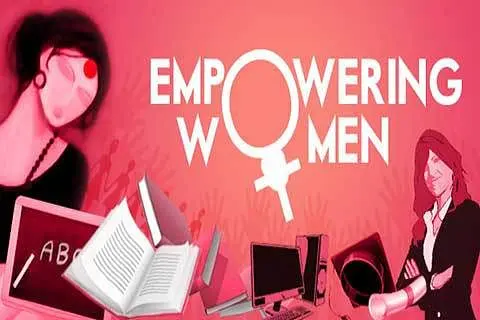Kashmir, a region known for its picturesque landscapes, has long been a place of both beauty and turmoil. However, amidst the challenges, women in Kashmir are increasingly emerging as pillars of strength, resilience, and change. Education is one of the most powerful tools for women empowerment, and in Kashmir, the role of girls’ education has proven to be pivotal in breaking age-old barriers and creating opportunities for societal progress.
Historically, the region has faced numerous challenges, from political instability to economic difficulties, all of which have hindered the development of the education sector. The aftermath of ongoing conflict, a lack of infrastructure, and societal norms often place barriers to girls attending schools. While boys have had more access to education, girls have faced restrictions, sometimes based on traditional views of gender roles. Additionally, security concerns and the displacement of families due to the volatile situation have further complicated efforts to ensure uninterrupted education for girls.
Despite these challenges, many organizations and individuals have worked tirelessly to promote the importance of girls’ education in Kashmir. Various governmental and non-governmental initiatives aim to ensure equal opportunities for girls, from scholarships and awareness programs to improved school facilities. Local activists, educators, and grassroots organizations continue to push the boundaries for change, advocating for girls’ rights to education and employment.
Moreover, the Jammu and Kashmir state government, in partnership with national and international bodies, has made efforts to promote girl-centric education initiatives. Programs like the Beti Bachao Beti Padhao scheme and the establishment of girls-only schools have contributed to improving enrollment rates and gender parity in education. The rising participation of girls in secondary and higher education indicates a positive shift in the region.
Education is a catalyst for women’s empowerment. In Kashmir, when girls are given access to quality education, they gain the tools to challenge existing gender norms and contribute more meaningfully to their communities. Educated women are more likely to delay marriage, have fewer children, and provide better healthcare and education to the next generation.
Additionally, women who are educated tend to have higher participation in the workforce, which contributes to the region’s economic growth. In a society where gender-based violence and discrimination remain prevalent, education equips women with the confidence and legal awareness to stand up for their rights, making them more self-reliant and active participants in decision-making processes at both the familial and community levels.
In recent years, numerous Kashmiri women have emerged as leaders, educators, and entrepreneurs, breaking stereotypes and inspiring others. Women like Dr. Syeda Sadaf Ali, who runs an NGO focused on women’s health and education, and young girls who have excelled in national exams despite challenging circumstances, are shining examples of the potential unleashed when girls have the opportunity to pursue education.
Moreover, programs that focus on vocational and technical training for women are creating avenues for women to enter non-traditional fields, such as technology, health services, and entrepreneurship. These initiatives have allowed women to not only find jobs but also create employment opportunities for others in their communities.
To further the cause of women empowerment through girls’ education, there needs to be continued investment in infrastructure, curriculum reform, and the elimination of gender biases in schools. A more inclusive and progressive mindset, both at the policy level and within society, is required to ensure that girls in Kashmir can access education without fear, stigma, or discrimination.
While there is still much work to be done, the growing number of educated women in Kashmir offers hope for a more equitable and prosperous future. Girls’ education in the region is not just about personal development but about transforming society as a whole. The key to lasting peace and development in Kashmir lies in empowering its women and ensuring that every girl has the opportunity to learn, grow, and lead.
The empowerment of women and girls through education in Kashmir is both a challenge and an opportunity. By investing in girls’ education, society can break the chains of poverty, patriarchy, and conflict that have plagued the region for decades. As more girls in Kashmir gain access to education, the path to a brighter, more peaceful future becomes more tangible. The future of Kashmir is indeed bright when its girls are educated, empowered, and ready to take on the world
Women empowerment and Girls’s Education in Kashmir
A
A


